
Iain Dale 10am - 1pm
30 March 2020, 16:42

Inside the first NHS Nightingale Hospital
The first pictures of the new NHS Nightingale hospital being erected in London's ExCel centre have been released, highlighting the extent of the measures needed to tackle the UK's coronavirus crisis.
Rows upon rows of cubicles can be seen as soldiers and trade contractors convert the exhibition centre, which usually hosts spectacles and conferences, into the first of the NHS Nightingale hospitals.
The effort should see the temporary facility in the capital's Docklands open its doors this week to its first patients, with capacity ultimately reaching 4,000 beds.
Initially 500 beds equipped with ventilators and oxygen will be used to treat the seriously ill. Their numbers are expected to swell in the capital ahead of the rest of the nation.
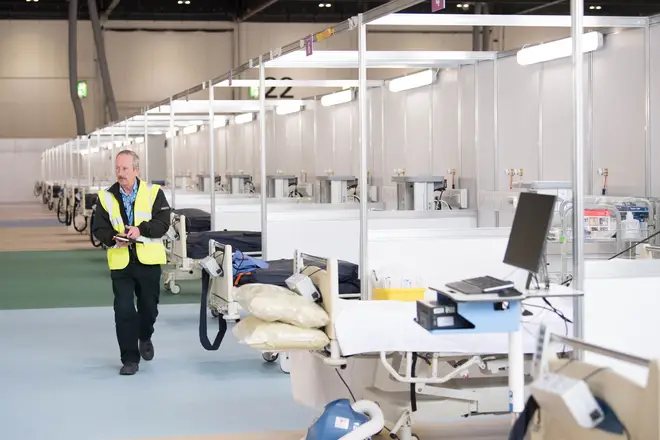
The NHS will build more temporary hospitals in Birmingham, Manchester, Cardiff and Scotland.
The task of boosting critical care capacity has been under way since the health service declared an emergency at the end of January.
Before the scale of the crisis became clear, the UK was believed to have had one of the lowest proportions of intensive care units in Europe, but NHS England chief executive Sir Simon Stevens says 33,000 beds are now available for Covid-19 patients.
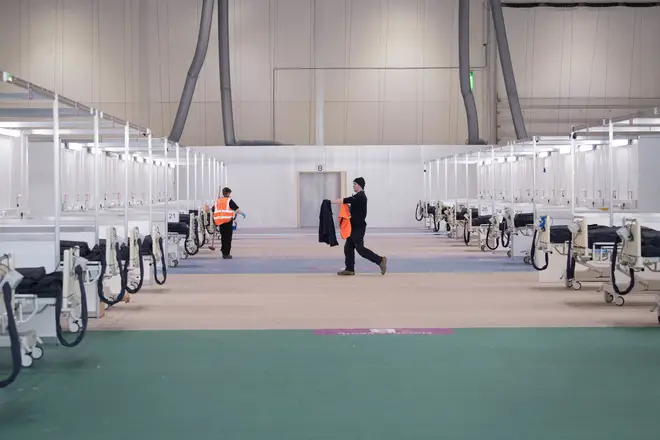
Professor Stephen Powis, national medical director of NHS England, said at the Government's daily press briefing that capacity had not yet been reached in regular hospitals.
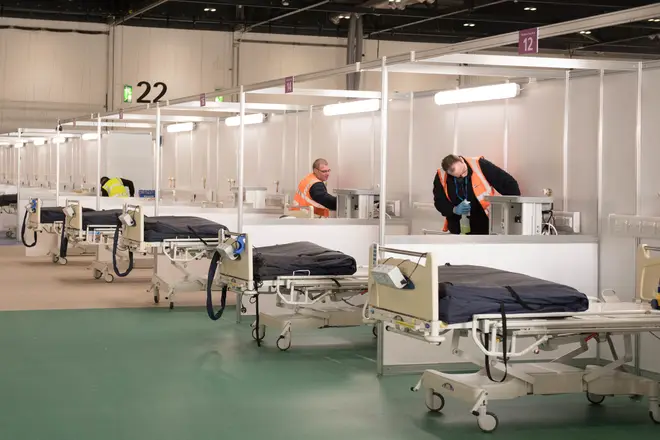
"We are not at capacity as yet within London, but beds are being opened all the time to produce that extra surge capacity so in the first instance we are using theatres and recovery areas," he said.
"Those are areas in hospitals where anaesthetic machines and ventilators are already used for surgery and can be readily adapted to take critically ill patients."
He continued: "That is almost doubling the capacity that we have already, we are not using it at the moment but clearly the number of patients is increasing each day so we are expanding that capacity in advance.
"You will also have seen the plans at the NHS Nightingale, in east London, to initially bring on another 500 beds if they are needed. And we aim to get that up and ready for patients next week.
"At the moment I am confident that capacity is there. We have not reached capacity and also I am confident that capacity is expanding, especially in London, so that we keep ahead of increase in patient numbers."
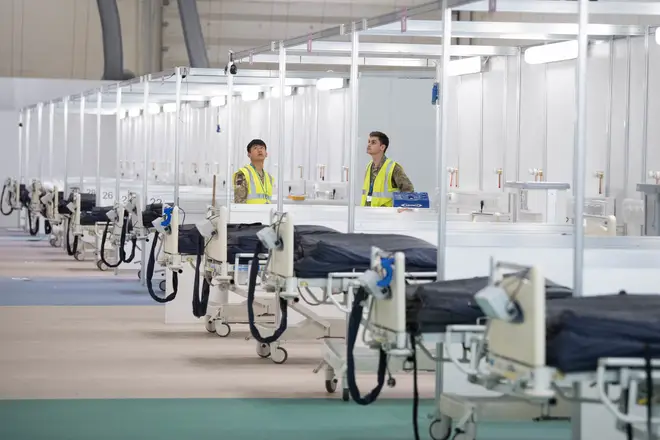
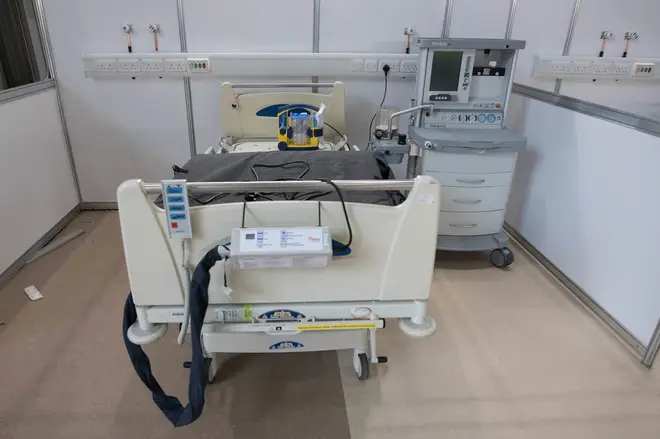
The National Exhibition Centre in Birmingham will add an initial 500 beds, with the potential to grow to 2,000 if necessary.
Manchester Central Convention Complex will add 500 more, with the capacity to expand to 1,000, and Cardiff's
Principality Stadium will provide up to 2,000 more.
Efforts are under way to source the doctors, nurses and non-clinical workers to staff the huge units.
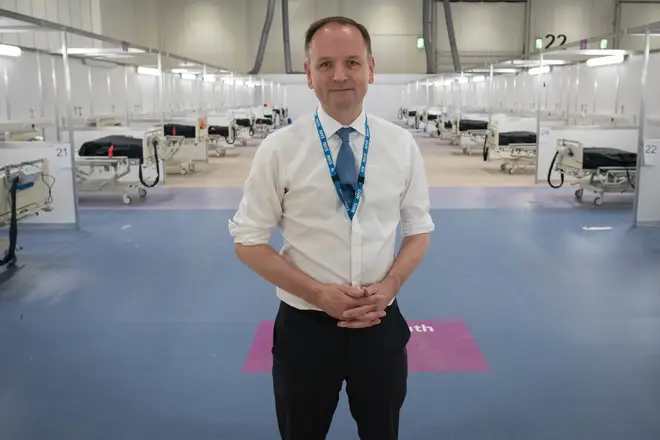
St John's Ambulance have already said that hundreds of people will give their time at the first Nightingale hospital in London.
Staff will also include cabin crew being brought in to help NHS staff in the new Nightingale hospitals.
Staff at Virgin Atlantic and EasyJet have been invited to volunteer at the new 4,000-bed clinic being built at the Excel centre in east London, and those planned in Birmingham and Manchester.
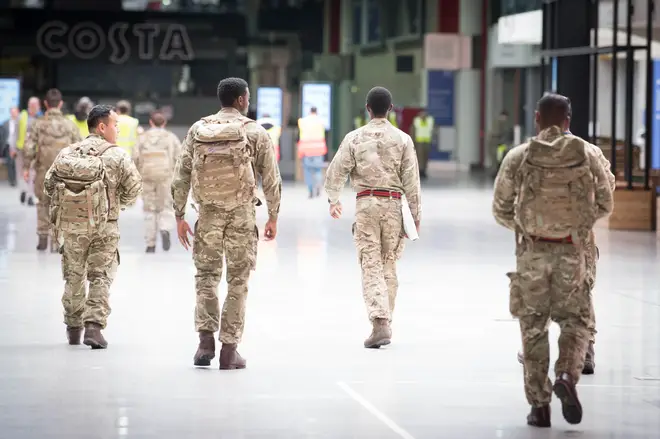
Their salaries will continue to be paid by the airlines.
Many first-aid trained cabin crew across the world have been grounded as countries have closed borders and cancelled flights amid the Covid-19 pandemic.
EasyJet has already written to its 9,000 UK-based staff including 4,000 cabin crew trained in CPR to invite them to give their time to the NHS.
Virgin Atlantic will begin writing to 4,000 of its employees on Monday and will prioritise getting in touch with those who already have the required skills.
Those who join up will be given expert training and will then perform support roles such as changing beds under the guidance of trained nurses.
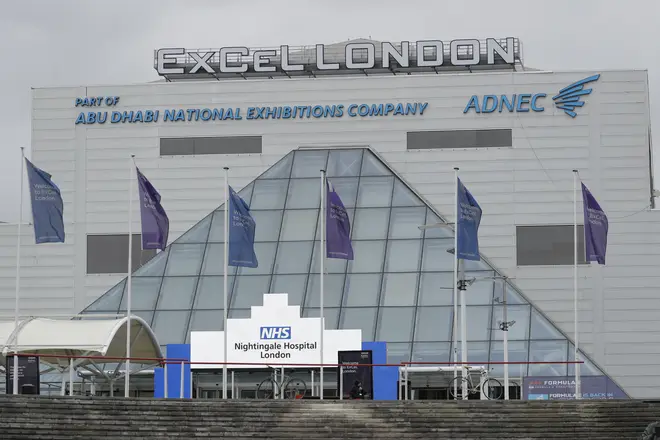
Corneel Koster, chief customer officer at Virgin Atlantic, said: "We are grateful to the NHS for everything they are doing in extremely challenging circumstances and we're committed to doing all we can to support the national effort against the rapid acceleration of Covid-19."
EasyJet has said it is "proud" its staff can support medics at this "crucial time".
Tina Milton, director of cabin services, added: "The NHS is at the forefront of dealing with this health emergency but the training and skills our cabin crew have, working closely with the medical professionals, could help make a real difference."
Ruth May, chief nursing officer for England, said the NHS needs "all the support we can get".
She added: "Thousands of nurses, medics and other expert staff are returning to work alongside us, but we need everyone to do their bit - whether that is working in one of our current health or social care services, working in the Nightingale Hospital, volunteering to help the NHS or following government advice to stay at home, protect the NHS and save lives."